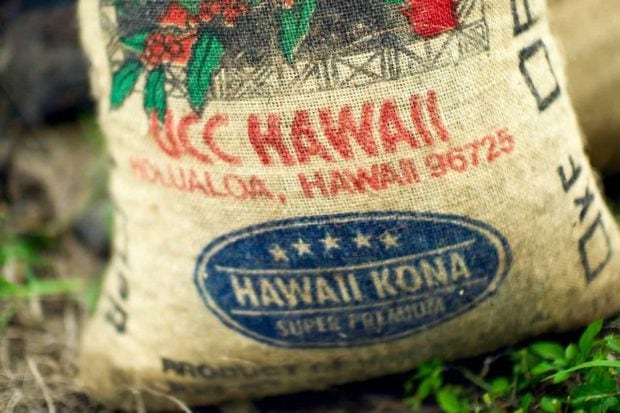How does the state of raw coffee beans with unique spices in Hawaiian Kona coffee beans affect the taste?
Kona coffee is very popular worldwide. There is a lot of discussion about Kona coffee, and there is no doubt that taste is an important part of it.
You are unlikely to find coffee beans that taste like Kona. To explain to you in a few words the taste of Kona coffee, it would look like this.
Imagine a mixture of brown sugar, milk chocolate, a touch of honey and a touch of fruit. This can be anything from strawberries to grapefruit. Macadamia nuts and hazelnuts can also substitute fruit flavors, providing a nutty alternative. Don't be surprised if you taste a hint of cinnamon, spice or even licorice. This is the true flavor of Kona coffee.

When it comes to the taste of Kona, it's unfair to just say it tastes like a cup of fruity coffee. Traditionally, Kona coffee is medium sweet and medium alcoholic with just the right acidity and not too bitter.
During the roasting process, Kona coffee first releases sweet fruity aromas. As the roasting process continues, the fruity flavor declines and the coffee develops a rich flavor. That's when the taste begins to suggest pungency, sometimes nutty. The type of baking determines which undertones stand out most.
Coffee's acidity is the part of it that gives it the much-anticipated bite when it hits your taste buds. Kona coffee usually has a vibrant but mild acidity. The real Kona is full-bodied. Some people even call it a slightly buttery taste. This is the taste most people associate with real Kona blended coffee.

How the state of beans affects taste
Coffee makers have found that changing the maturity of coffee beans gives you a completely different experience than Kona coffee. Using immature green coffee beans usually produces a stronger flavor, and those who prefer specialty coffee will enjoy this flavor.
On the other hand, overripe beans produce a fermented flavor. Although these two different Kona flavors may be popular in some circles, only mature red beans produce accurate, authentic Kona flavors.
Another tip to make sure Kona coffee tastes as authentic as possible is freshness. When coffee beans are stored for too long, they tend to give off a bland taste. As a coffee lover, although there are coffee containers that can keep the coffee powder fresh for a while, you should always stick to Kona coffee made with the current crop. In this way, you will always enjoy the subtle, rich, smooth and fresh taste of a real Kona blend.
Important Notice :
前街咖啡 FrontStreet Coffee has moved to new addredd:
FrontStreet Coffee Address: 315,Donghua East Road,GuangZhou
Tel:020 38364473
- Prev

Hawaiian Coffee Bean producing area introduces Kona Coffee Flavor and Taste description Starbucks selects Kau Coffee?
Although Kona Coffee is still the most famous Hawaiian coffee export in history, there is no denying that some new coffee growing areas have emerged. As the focus of agriculture has shifted from sugar to coffee, more and more small coffee farmers have emerged. Let Qianjie introduce the new producing areas of Hawaiian coffee one by one. Although Kona started with the most famous coffee cultivation in Hawaii.
- Next

History of Origin of Coffee beans in Guatemala, 10th Coffee producer in the World COE bidding Information for Guatemala
Guatemalan Coffee: know the origin of your coffee Guatemala is a relatively small country, but it is extremely diverse in all respects. It has one of the most diverse climates in the world, with 21 Mayan dialects and growing coffee with a variety of flavor characteristics. Although this Central American country has experienced political upheaval and economic destruction from foreign governments,
Related
- Detailed explanation of Jadeite planting Land in Panamanian Jadeite Manor introduction to the grading system of Jadeite competitive bidding, Red bid, Green bid and Rose Summer
- Story of Coffee planting in Brenka region of Costa Rica Stonehenge Manor anaerobic heavy honey treatment of flavor mouth
- What's on the barrel of Blue Mountain Coffee beans?
- Can American coffee also pull flowers? How to use hot American style to pull out a good-looking pattern?
- Can you make a cold extract with coffee beans? What is the right proportion for cold-extracted coffee formula?
- Indonesian PWN Gold Mandrine Coffee Origin Features Flavor How to Chong? Mandolin coffee is American.
- A brief introduction to the flavor characteristics of Brazilian yellow bourbon coffee beans
- What is the effect of different water quality on the flavor of cold-extracted coffee? What kind of water is best for brewing coffee?
- Why do you think of Rose Summer whenever you mention Panamanian coffee?
- Introduction to the characteristics of authentic blue mountain coffee bean producing areas? What is the CIB Coffee Authority in Jamaica?

